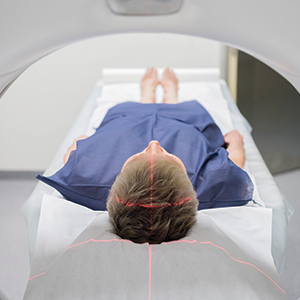-
Policy Matters
Eliminating HPV-Related CancerHPV vaccination and screening can help eradicate cervical cancer and other malignancies.
by Anna R. Giuliano, PhD
-
Keeping an Eye on Cancer
Imaging tests for post-treatment surveillance may come with radiation exposure, financial strain, “scanxiety” and sometimes unnecessary follow-ups. Doctors and patients need to balance the risks and benefits of scanning.
by Charlotte Huff
-
More Options for Rare Cancers
Precision medicine and immunotherapy offer opportunities for new treatments and clinical trials to patients who previously had few, if any, options.
by Kendall K. Morgan
-
The Patient Perspective
Patient-reported outcomes may help shape the future of cancer care.
by Stephen Ornes
-
Healthy Habits
Power OffToo much time spent looking at electronic devices can come at a cost.
by Cameron Walker
-
Q&A
Hope Amid the HypeHematologist-oncologist David Scadden traces the history, promise and uncertainties of treatment advances in Cancerland: A Medical Memoir.
by Marci A. Landsmann
-
From the Editor-in-Chief
Why Are Liver Cancer Death Rates Up?Hepatitis C infection, obesity and alcohol can contribute to more cases of liver cancer.
by William G. Nelson, MD, PhD
-
Forward Look
Some Prostate Cancer Patients Face a Difficult DecisionSurgery and radiation have similar benefits but different side effects.
by Stephen Ornes
-
Forward Look
Looking for Brain MetastasesStudies aim to identify when screening is beneficial.
by Sue Rochman
-
Forward Look
Lynch Syndrome Linked to More CancersStudy findings suggest patient screening has been too narrow.
by Sharon Tregaskis
Cancer Talk
Treatment Combination Improves Survival in EGFR-positive Lung Cancer
Adding chemotherapy to targeted therapy improves outcomes for people with advanced EGFR-positive non-small cell lung cancer.
by Sandra Gordon
Lessons From 20 Years Living With CancerMultiple myeloma survivor Jonathan Gluck reflects on uncertainty, and the scientific progress that has kept him living with cancer for more than two decades.
by Eric Fitzsimmons
The Enduring Importance of Cancer Disparities ResearchOpening session from AACR conference highlights how perseverance and adversity have informed cancer disparities research over the years.
by Eric Fitzsimmons
Most Cancer Survivors Don’t Meet Healthy Diet GoalsDespite research linking fruits and vegetables to cancer survival, many people do not change their eating habits after diagnosis.
by Darlene Dobkowski















